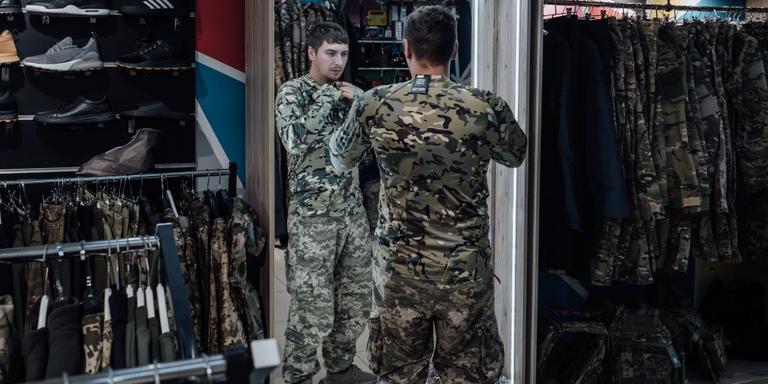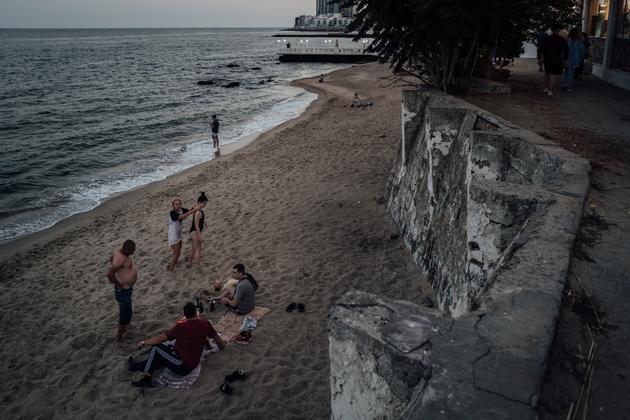


In Ukraine, 'people can't live in mourning all the time'
NewsAs the war drags on, there is growing concern about a possible division between those who are still contributing to the war effort and those who want to return to life as it was before.
From a distance, on a sandy grey beach in Odesa, the large southern Ukrainian city on the Black Sea, there is nothing to distinguish them from the other groups enjoying their day's end at Arcadia, Odesa's flashy seaside resort district dotted with noisy bars and open-air discos. Up close, however, 25-year-old Vladislav's metal prosthetic leg, which stretches all the way up to the top of his left thigh, is a stark reminder of another reality, one which seems out of place in the city's late summer weather: that of the full-scale war that rages on in the country since the Russian attack on February 24, 2022.

Sitting there in his shorts, his gaze was distant but fearless. His eyes revealed that he'd already used up his quota of fear. His companions, on the other hand, stood united. Defensively, his 20-year-old wife Dana – three months pregnant, in a one-piece swimsuit, her black hair tied in a bun on her head – gave her answer before any question could be asked: "He got it before the war, in a car accident." This was untrue, of course, and it loosened everyone's tongues. Another young woman in a wet T-shirt, Vladislav's father-in-law – bare-chested with a big belly – and another large man, all spoke at once. They'd been drinking. All around them, the scattered remains of liquor bottles, beer cans and dried fish. They'd been trying to forget the war for a moment, but for them, it's never far away.
"In the beginning," Vladislav continued, "you could still feel the spirit of the nation. Now it's over, people have forgotten that there ever was fighting. Even the government doesn't care about us; I get 1,500 hryvnias [€20] a month. It's a disgrace." A victim of mortar fire, his leg was amputated at the end of February 2022. His anger was followed by Dana's. Her uncle burned alive in September 2022, along with his entire unit, in a missile strike. "Odesa doesn't care about the war," she said. "Going to a café or restaurant is fine. But how can you go to a nightclub when people are dying every day on the front line?"
War is not just experienced by soldiers. The people's support and the unity of the country count just as much. More than a year and a half after the Russian invasion, there is a growing concern about a possible division between those who are still contributing to the war effort and those who – tired of living in a state of permanent stress – just want to return to life as it was before. This concern was echoed on September 25 by Ukrainian Social Policy Minister Oksana Zholnovych at an international forum on sustainable development. According to her Ukrainians are now in a comfort zone: "We need to break down everything that is social today and simply reformat from scratch a new social contract."
You have 75.23% of this article left to read. The rest is for subscribers only.
